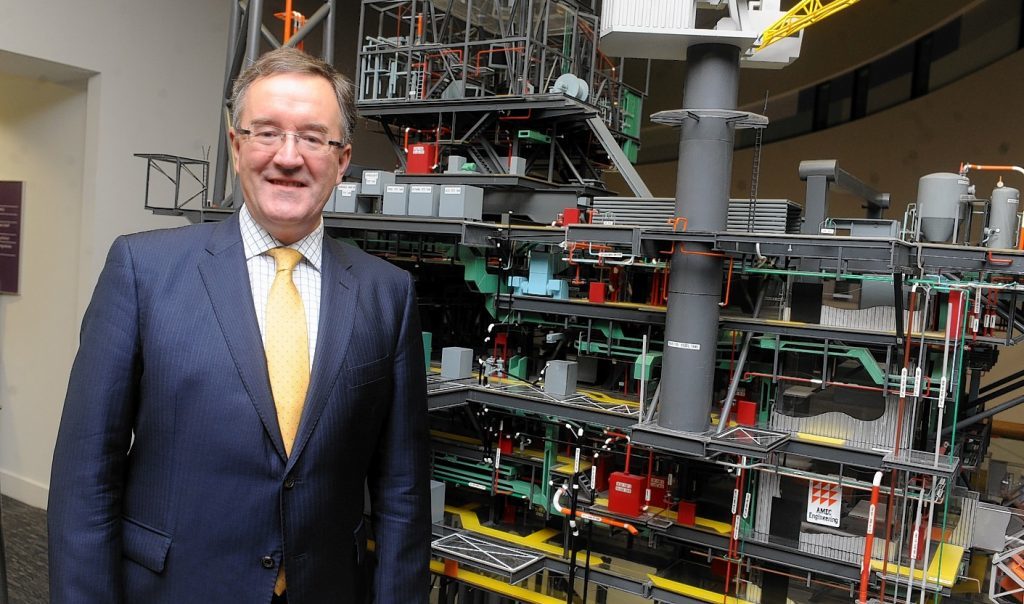
Mention Algeria in oil and gas circles these days and the deadly terrorist attack on the In Amenas gas plant more than four years ago is likely to spring to mind.
But Scottish firms should not use that dreadful incident as an excuse to ignore business opportunities in the north African country, according to Andrew Noble, the UK’s ambassador to Algeria.
Algeria. now Africa’s largest country following the 2011 partition of Sudan, has suffered from an image problem since the incident, killing 40 workers, in January 2013, he said.
The BP-operated In Amenas facility was targeted by terrorists linked to al-Qaeda who took hundreds of employees hostage in a four-day armed siege.
Algeria today is no more dangerous than many other countries, Mr Noble said, adding: “The terrorism risk is like anywhere else.
“A lot of work has gone into improving security and increasing protection around oil and gas installations.
“There is a residual threat but there are many locations in the world where it is much worse.”
Algeria seems to be struggling to change people’s perceptions in other ways.
Mr Noble said there was an “amazing lack of awareness” about the country and its energy resources.
He added: “One of the biggest problems with Algeria is that you really cannot understand it from the outside. There is also very little communication internally by the government of the country.
“They talk to us, so we know what they are doing and planning to do, but they don’t necessarily communicate that to their own people.”
The oil and gas sector is the backbone of the republic’s economy, accounting for about 60% of government revenues, nearly one-third of gross domestic product and two-thirds of total exports.
Figures from oil producers’ cartel Opec, which Algeria joined in 1969, show that in 2015 the country had proven crude and natural gas reserves of 12.2billion barrels and 4.5trillion cubic metres respectively.
Crude production totalled 1.16million barrels per day, while total marketed natural gas output came in at more than 83billion cubic metres.
Bilateral relations between Algeria and the UK are in good shape and have grown significantly in recent years, bolstered by a visit by former UK prime minister David Cameron in 2013.
Mr Noble, who has had previous diplomatic postings in South Africa, Germany, Greece and Romania, took up his current role in June 2014.
He was recently in Aberdeen, where the Robert Gordon University has forged strong links with Algeria over many years.
The university has delivered training services for many hundreds of Algeria-based oil and gas workers on behalf of state-owned company Sonatrach.
Mr Noble said: “Algeria needs the sort of skills and experience that Aberdeen is famous for.
“The country has a huge reliance on oil and gas, but the sector is not as developed as it is in the Gulf countries. The cut in the oil price has force it to move much quicker.”
Covering an area of more than 2,300 square kilometres, half of it desert, Algeria is territorially the largest member country within the Opec oil producers’ cartel.
It is also Africa’s fourth largest economy, with vast mineral deposits.
The country achieved political independence in 1962 after a bitter and bloody struggle ended more than a century of colonial rule by France.
It is home to nearly 40million people, including more than 3.5million in the capital, Algiers.
Arabic is the official language, while French and Berber Tamazight are also spoken. The currency is the dinar.
Algeria’s first commercial oil discovery was Edjelleh in 1956, followed swiftly by the Hassi Messaoud field the same year. Production began in 1958.
The country bears the psychological scars of years of internecine civil conflict in which as many as 200,000 lives were lost.
Mr Noble described the pace of change since its emergence from these dark days as nothing less than astonishing, with fortunes spent on developing infrastructure and “the greatest human development story on continental Africa”.
He added: “What they have done in the past 55 years is quite exceptional.”
A growing number of small and medium-sized UK firms are joining big operators like BP and Shell in recognising the opportunities available in Algeria, he said, adding: “It’s just two-and-a-half hours flying time from London, and they speak French and increasingly English.
“This is a market which is not as unapproachable as it is often misrepresented.”
Scottish companies already active in Algeria include John Bell Pipeline, Centrifuges Unlimited, Rollstud, Weir Oil and Gas and Reda Oilfield UK.
Recommended for you
